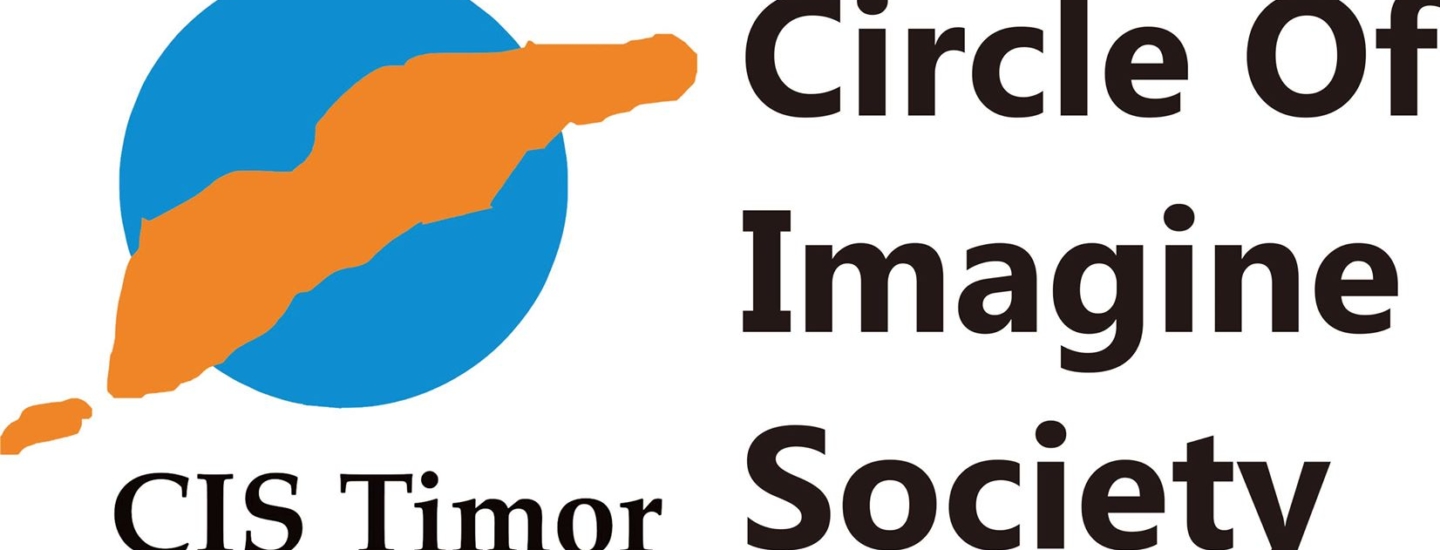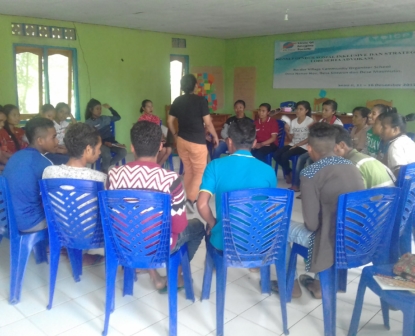Project
Youth for Inclusive Borders
-
Amount Funded
185,488 EUROProject Duration
01 Aug 2017 - 31 Jul 2020 -
-
Lead organisation
-
Cis Timor believes in the power of dreaming and hard work to change the face of Timor Island. The dream of Timor’s face inspiring the creation of a better world. This dream becomes a personal call from every volunteer and organisational board member to join the inspirational sharing circle to make it happen. This idea is born out of commitment of every person who dreams of Timor as heaven: a place everyone longs for, where all are comfortable working his land, everyone is eager to make it beautiful. In Timor dreams later on, the truth is visible, the justice becomes whole, welfare comes to life, peace becomes a culture and everyone desires to be part of the vibrant spirit of world change from Timor.Here are five steps to change the dream of Timor :
- Timor Healthy; Focus on encouraging Governments and Communities to access Suitable Water and Sanitation.
- Timor Resiliance; Communities, Government and CSOs are aware of the disaster threats and understand the actions to be taken before and after disasters.
- Timor Prosperous; Building the independence of the village community from resources and funds. Communities have strong access to village planning and budgeting.
- Timor Equivalent; All Households understand equality and replace patriarchal culturewith equivalent culture. No more violence against women.
- Timor Peace; Become the center of Peace learning with peace-building work.
-
Organisation
Cis Timor believes in the power of dreaming and hard work to change the face of Timor Island. The dream of Timor’s face inspiring the creation of a better world. This dream becomes a personal call from every volunteer and organisational board member to join the inspirational sharing circle to make it happen. This idea is born out of commitment of every person who dreams of Timor as heaven: a place everyone longs for, where all are comfortable working his land, everyone is eager to make it beautiful. In Timor dreams later on, the truth is visible, the justice becomes whole, welfare comes to life, peace becomes a culture and everyone desires to be part of the vibrant spirit of world change from Timor.Here are five steps to change the dream of Timor :
- Timor Healthy; Focus on encouraging Governments and Communities to access Suitable Water and Sanitation.
- Timor Resiliance; Communities, Government and CSOs are aware of the disaster threats and understand the actions to be taken before and after disasters.
- Timor Prosperous; Building the independence of the village community from resources and funds. Communities have strong access to village planning and budgeting.
- Timor Equivalent; All Households understand equality and replace patriarchal culturewith equivalent culture. No more violence against women.
- Timor Peace; Become the center of Peace learning with peace-building work.
-
Project
Whether it concerns infrastructure, society, and the state apparatus, there are many challenges and capacities that need to be strengthened in order to make Belu ready as the front liner of Indonesia, inclusive, fair and equal. The other issue is the location of the border area on the sub-district’s area. District and province level implementation should include the border area. It is true that the Government in the national level started to have a better focus on the development of the border area. However, any intervention even in other villages not on the border, or even in the district or the province level also can be justified as the border budgeting and interventions/programs. This caused limitations in budgeting priority at the village level in the border area. Economic, health and education services need to get attention in the border villages of Indonesia and the Democratic Republic of Timor-Leste, both in terms of access and quality of services.
Through this programme CIS wants to develop a model of community organising that involves young people, women, people with disabilities and others to advocate and lobby to improve access and quality of services at the top in their villages. The project aims to strengthen the capacity of groups of young people, women, persons with disabilities and indigenous peoples in the border villages to improve access and quality of service economy, education and health, with two specific objectives namely: increasing the capacity of Knowledge Society Village Border in Influencing Policy and Budget Village; and 2. Action Planning and Development Advocacy Strategy.
With the approach of Community Organising and Rural Development Action Plan, Strategy Advocacy groups are facilitated to advocate and lobby for the interests of their own communities ranging from the level of villages, districts, and provinces, even the central government. These communities are capacitated to perform mapping and supported with study/research on potential policies and budgeting can be accessed and stakeholder is responsibility. With this approach it is expected that inclusive policies and budgeting can improve the quality of service in economy, health and education in border villages without discrimination since the process has involved all communities.
-
Whether it concerns infrastructure, society, and the state apparatus, there are many challenges and capacities that need to be strengthened in order to make Belu ready as the front liner of Indonesia, inclusive, fair and equal. The other issue is the location of the border area on the sub-district’s area. District and province level implementation should include the border area. It is true that the Government in the national level started to have a better focus on the development of the border area. However, any intervention even in other villages not on the border, or even in the district or the province level also can be justified as the border budgeting and interventions/programs. This caused limitations in budgeting priority at the village level in the border area. Economic, health and education services need to get attention in the border villages of Indonesia and the Democratic Republic of Timor-Leste, both in terms of access and quality of services.
Through this programme CIS wants to develop a model of community organising that involves young people, women, people with disabilities and others to advocate and lobby to improve access and quality of services at the top in their villages. The project aims to strengthen the capacity of groups of young people, women, persons with disabilities and indigenous peoples in the border villages to improve access and quality of service economy, education and health, with two specific objectives namely: increasing the capacity of Knowledge Society Village Border in Influencing Policy and Budget Village; and 2. Action Planning and Development Advocacy Strategy.
With the approach of Community Organising and Rural Development Action Plan, Strategy Advocacy groups are facilitated to advocate and lobby for the interests of their own communities ranging from the level of villages, districts, and provinces, even the central government. These communities are capacitated to perform mapping and supported with study/research on potential policies and budgeting can be accessed and stakeholder is responsibility. With this approach it is expected that inclusive policies and budgeting can improve the quality of service in economy, health and education in border villages without discrimination since the process has involved all communities.
-
The Belu Regency region located at the border of Indonesia and Timor Leste faces numerous challenges owing to its remote location. The community’s situation, especially the three villages located at the border affects their access to the village funding resulting in limited access to basic social and economic services. CIS Timor is an organization that believes in the power of dreaming and hard work to change the face of Timor Island. Its project focuses on the following key ‘dreams’:
- Timor Healthy- focus on encouraging governments and communities to access suitable water and sanitation.
- Timor Resilience- communities, government and CSOs are aware of the disaster threats and understand the actions to be taken before and after disasters.
- Timor Prosperous- building the independence of the village community from resources and funds. Communities have strong access to village planning and budgeting.
- Timor Equivalent- all households understand equality and replace patriarchal culture with equivalent culture. No more violence against women.
- Timor Peace- become the centre of peace learning with peace-building work.
Through the project Youth for Inclusive Borders, CIS Timor sought to develop a model of community organising that involved young people, women, people with disabilities and others to advocate and lobby to improve access and quality of services in their villages.
CIS Timor succeeded in strengthening capacities of 75 youth and 69 students graduating from the non-formal school. This school was implemented in three learning sessions. The students had regular youth meetings and meetings with the village government, which meant they had space and opportunities to participate in government deliberations. They also lobbied the government for policies that favour the group at risk.
Through the intervention of this project, young people participated in various mentoring activities. With these activities, their knowledge and confidence increased so that they were able to map the potential of human resources, natural resources and development resource. The mapping resulted in disaggregated data, including families who do not have a liveable house, children who have not attended early childhood education, residents who do not have birth certificates, households that lacked healthy latrine facilities, malnourished children, elderly people, and houses that did not have electricity and clean water networks.
The results of the mapping were summarized into a Village Action Plan Document (RADES) to be submitted to the village government, district government, provincial government, and other relevant stakeholders. Previously, the youth had never been involved in any organization in the village but as a result of the project, the village government was able to give them space to be involved. Moreover, there has been a change at the level of Village Government Policy. Where previously there was no specific policy for at risk groups in the village, the Village Government began directing a special budget to support the groups most at risk.
In terms of improving people’s living condition, the natural dye weaving business that was previously carried out individually, without a definite marketing network, is now being organised in groups and the results are clearly marketed to the Belu Regency National Craft Council. The group’s income from this business is around IDR 7,000,000 to IDR 10,000,000. The same experience has been replicated with persons with disabilities who were previously neglected, but with the project intervention they now receive support from the Village Government in the form of business support tools. In the past, grape fruit cultivation was not widely known to the public. However, since 2018 through a youth action plan, grape cultivation is now bearing fruit with the initial harvest reaching 20 kilograms with a selling price of IDR 60,000. This plant is now being widely recognized by border communities
- News




